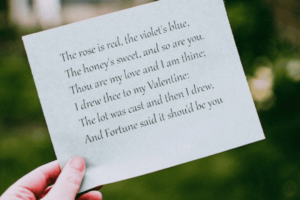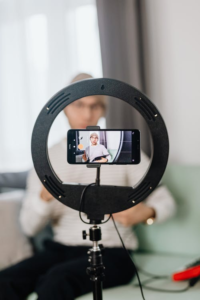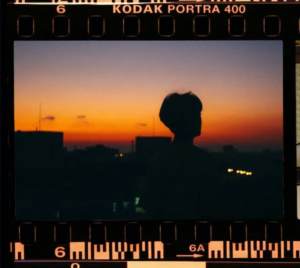Creating a DIY ring light can make your video presentations look more professional without costing you a lot of money. These modern lights create attractive, soft lighting effects by reducing harsh shadows. Commercial ring lights can be expensive, but DIY solutions are a fraction of the price. The items used to make DIY ring lights are readily available at hardware stores or even already at home. While there are some complex lighting projects, there are many methods that don’t require any tools or specialized knowledge at all. That makes them a great option for people without a lot of DIY experience. Some people also say their DIY ring lights do not heat up as much as commercial options – a great perk for long filming sessions.
1. Wreath DIY Ring Light
Popular vlogger Peter Drazy shared his method for creating a ring light on his YouTube channel. This method is a great option for DIY novices, as it requires no tools or wiring.
Materials
This DIY project requires the following household items:
- The wide frame from a Christmas wreath
- Adhesive LED rope lights
- Cardboard
- Aluminum foil
- Transparent tape
Method
Once you’ve gathered your items, follow these instructions to make your own affordable ring light:
- Trace the outline of your wreath frame onto a piece of cardboard.
- Cut out your cardboard ring.
- Wrap the cardboard with squares of aluminum foil.
- Stick rope lights to the wreath frame, leaving one end trailing down for the power plug.
- Wrap wreath with transparent tape to hold LED rope lights in place.
- Tape foil-covered ring to the wreath frame.
- Attach the loose end of rope lights to the power plug and turn on the ring light.
You can see Peter Drazy execute these steps in his video:
2. Alternative Wreath Ring Light
The popular beauty blog and YouTube channel Makeup Tutorials also posted a video detailing instructions for a similar ring light using a wreath frame and rope lights. Watching this video and its slightly different method may help you if you are struggling to create your own ring light:
Hose/Tubing DIY Ring Light
YouTube’s The Lighting Channel also posted their own DIY ring light tutorial. This is a slightly more complex DIY project, but it still doesn’t call for tools or wiring.
Materials
This homemade ring light features the following materials, costing less than $20:
- A white LED strip
- A white plastic drain hose
- White gaff tape
- Scotch tape (if your LED strip doesn’t have adhesive backing)
These products are all readily available from hardware stores.
Method
Once you’ve collected your materials, follow these steps, as demonstrated in the video:
- Fold the LED strip back on itself, so it has lights on both sides. If the strip doesn’t have its own adhesive backing, scotch tape will hold it in place.
- Insert the LED strip in the drain hose. Apply white gaff tape to hold the strip in place.
- Bend the hose into a ring shape and seal with white tape.
- Plug the LED strip into a nearby power outlet.
- Hang the ring light onto a camera and shoot.
Depending on your LED strip, you can experiment with different modes to create various lighting effects. Alternatively, you can alter the footage during post-production.
3. Alternative Hose/Tubing Ring Light
The Lighting Channel’s DIY light ring is similar to the homemade light ring Sara Nguyen shared with her readers. Nguyen, also known as the Social Media Rocketeer, uses a PVC pipe and a cold shoe mount in her design. She also uses self-mixing instant epoxy for strength. Watch her video for this variation:
4. Advanced Ring Light
Professional photographer Jay Russell shared his DIY ring light instructions on 500px. His is the most expensive and elaborate DIY ring light we’re mentioning. However, it’s also the closest to a professional ring light. Russell estimates that this project should cost between $50 and $100, depending on your materials. Allow between one and three hours, depending on your skill set. Since this DIY job requires working with electricity, Russell recommends hiring an electrician for the build or at least getting their advice for the project. Their professional services will of course add to the overall cost.
Materials
Jay Russell’s DIY ring light requires the following materials:
- Approximately 10 feet of 14-gauge household wiring
- 12 standard light sockets
- 24″x 24″ plywood (Russell used ¼” fir, but suggests 3/8” wood would add strength)
- A light switch (Russell used a 600-watt dimmer switch, but any switch will do)
- 12 light bulbs (CFL or incandescent bulbs will both work, although incandescent bulbs generate more heat. Russell used 40-watt household bulb. Note, wattage should not exceed switch limit.)
- A power cord
- A small bag of wire connectors
- Zip ties
- A bracket and spigot for mounting the light to a light stand
- Electrical tape
- Electrical box
Tools
You will also need the following tools to assemble the ring light:
- A jigsaw
- A drill
- Wire cutters and strippers
- A screwdriver
- Pliers
- A box cutter
- Measuring tape
- A pencil
- String
Method
Follow these steps to assemble Russell’s ring light:
- Measure your plywood and use the pencil to mark its center. Then place a mark 12 inches from the center.
- Attach the string to your pencil, anchor its free end to your wood’s center, and draw two concentric circles. The outer one should pass through the 12-inch mark. Make sure the gap between the two circles is wide enough to accommodate your light sockets.
- Cut out your circles with the jigsaw. Leave one corner of the outer circle intact to allow space for the mounting bracket and switch. It should look like a teardrop with a circular hole in the middle.
- Mark 12 evenly spaced points on your wooden shape for the light sockets, then drill a hole at each mark. The hole should be large enough for four wires, so a 7/16” bit is ideal.
- Cut 12 pairs of 8- to 10-inch black and white wires. Strip ¾ of an inch from the ends of every wire. Bend the bare wire ends with pliers to make hooks.
- Thread wire through the holes. Both ends of each wire should thread through adjacent holes. Each hole should have four wires: two black and two white.
- Wire in the light sockets. The white wires connect with the light socket’s gold contacts. The black wires connect with the silver contacts. Feed the wire onto the contacts in a clockwise direction to make sure the wire stays secure.
- Take the leftover white and black wire and wire them into your switch. Your switch should have instructions about how to do this.
- Use wire connectors to secure your wires, then tape them.
- Screw a light bulb into your last socket and test your work. Flicking your switch should turn your light off and on. If it doesn’t, unplug your light and check your wiring.
- Once you know your wiring works, unplug your light and zip-tie the wires in place. You can drill small holes in your shape for your zip ties.
- Cut off your teardrop’s tip. This will create a flat edge for your mounting bracket. Zip-tie the switch and bracket into place.
- Put your ring light on a stand and screw in the light bulbs.
- Plug your ring light in and test it out.
5. Alternative Advanced Ring Light
Ashlynn C, the woman behind the Enjoying Simple blog, also posted a video showing her method for creating a ring light. Like Russell’s, her design also utilizes hardware solutions for durability. She reports that the light she makes in this video still works two years after its construction:
Ring lights can enhance your homemade films, but they needn’t cost a lot of money. If you have a small budget, making a DIY ring light is an excellent lighting solution. To learn more about developing and applying techniques like lighting, join the Cinema Production Diploma program at Nashville Film Institute today.













